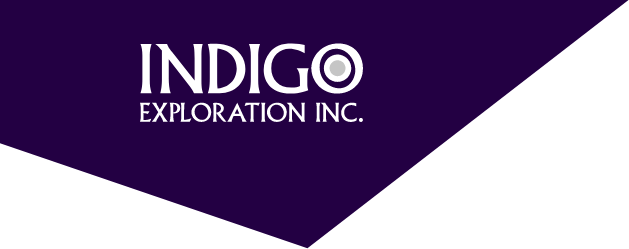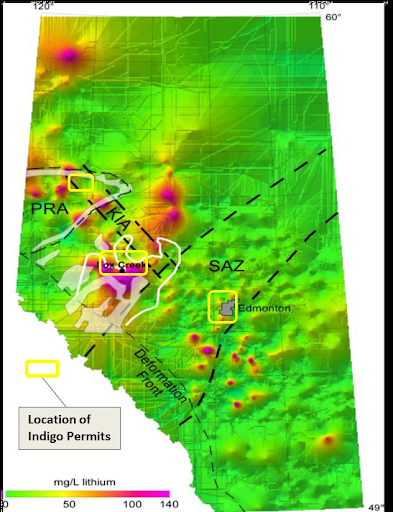
Figure 1: Company Permit Areas and Extent of Li-rich formation water in west-central Alberta (after D.R. Eccles1 and H. Berhane – Alberta Geologic Survey)
Lithium, Lithium Brines and Alberta
Global wave of demand for lithium is accelerating with the need for energy storage solutions, particularly for the electric vehicle industry. The demand for electric vehicles which require a significant amount of lithium is creating such a large market that lithium supply shortages are forecasted even this decade. This growing demand provides an opportunity for Alberta with its mature oil fields which also hold large deposits of lithium in subsurface brine. Considered an industrial waste from oil field operations, new technologies are being developed to tap into and extract Alberta’s lithium-brine potential from many of the same oil and gas reservoirs. These recent technological advancements position Alberta to potentially become a major lithium producer. Couple this with the abundance of existing geological data and infrastructure to access these reservoirs and a highly trained workforce, Alberta can capitalize on its lithium production potential.
Company Permits
The Company has been granted 18 Metallic and Industrial Minerals permits in central Alberta, Canada covering significant subsurface Devonian reef reservoir aquifers with the potential to produce large volumes of lithium-bearing formation brine. The permits total 147,904 hectares (147.9 km2 or 365,479 acres) in three key areas between Grand Prairie and Edmonton; Fox Creek, LeDuc and Grande Prairie (see Figure 1). There are over 700 wells that have been drilling on the Indigo permit areas.These permits are adjacent to permits held by E3 Lithium Ltd., LithiumBank Resources Corp., and Highwood Asset Management.
The acquired permits were selected based on their proximity to wells recording lithium brine levels between 72 and 130mg/l from the Leduc Carbonate Reef complex Woodbend Group and the underlying Beaverhill Lake Group rock as well as better brine water flow rates. The aquifers in these units historically have been known to host the highest grades of lithium-in-brine in Alberta.
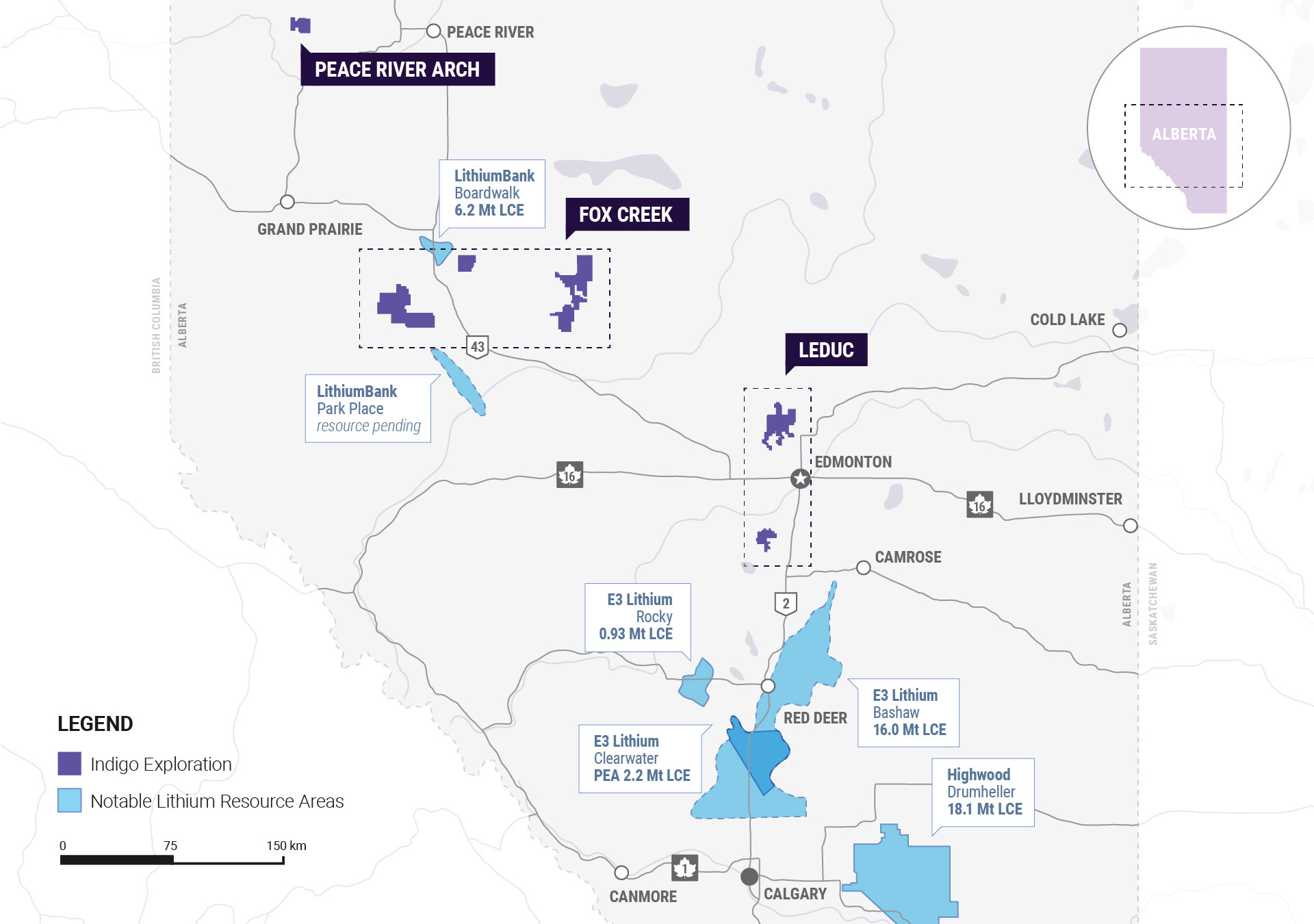
Figure 2: Indigo’s Properties in Alberta Relative to Notable Lithium Resource Areas
Note that Indigo’s individual property sizes are comparable in size to some significant lithium resource areas by competitors LithiumBank, E3 and Highwood. In addition, Indigo’s Fox Creek properties are near and on trend with Lithium Bank’s (TSXV:LBNK) Boardwalk lithium resource and their Park Place resource expected Q2/2023.
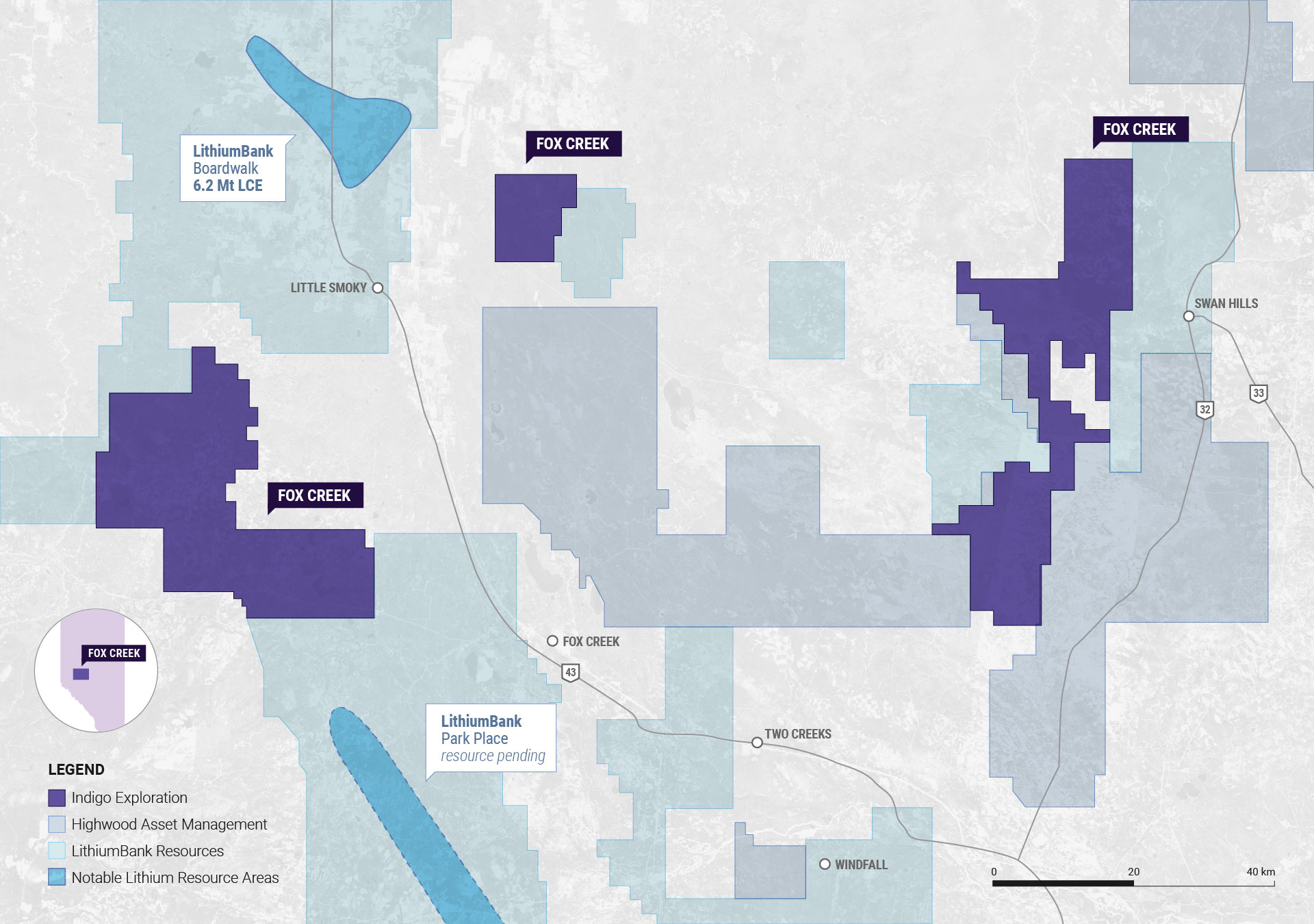
Figure 3: Indigo’s Fox Creek Lithium Brine Project (in purple) relative to LithiumBank resource areas
Fox Creek Project
The Fox Creek Project covers an area of 114,522 hectares (see Figure 2) and is comprised of the Fox Creek East (45,568 hectares), Fox Creek West (59,738 hectares) and Fox Creek Central (9,216 hectares) areas. These areas are targeting the Devonian Reef Complex, which is both a prolific formation for the production of hydrocarbons but also has the highest consistent lithium concentrations according to sampling data from the Alberta Geological Survey, between 72-130mg/L Li. This area is also being actively explored by Lithium Bank (TSXV:LBNK), who is expected to table a resource for its Fox Creek area in Q2/2023, and by Highwood Asset Management (TSXV:HAM).
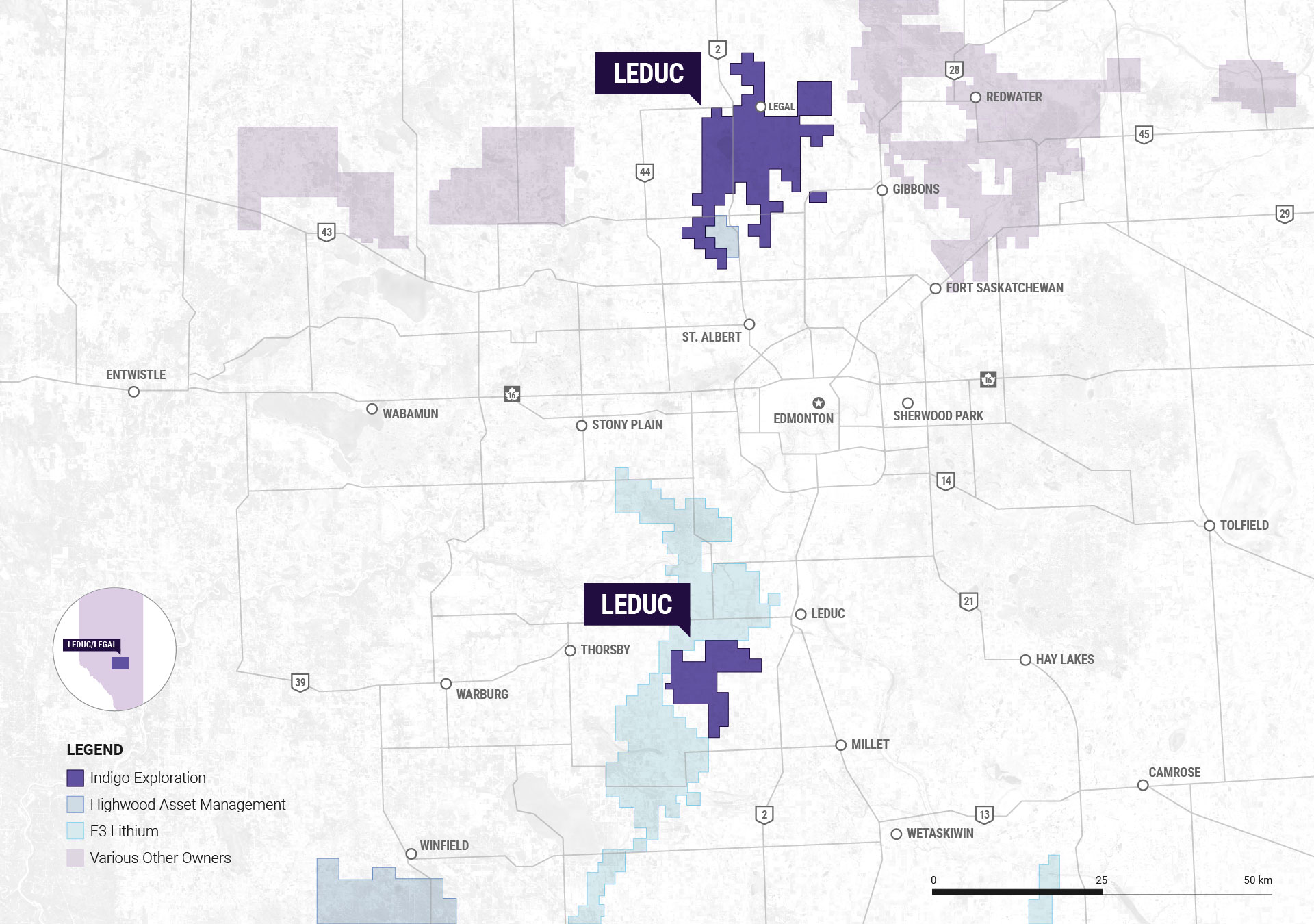
Figure 4: Indigo’s Leduc Lithium Brine Project (in purple) relative to E3 and Highwood Properties
Leduc Project
The Leduc Project covers an area of 23,488 hectares (see Figure 3) and is comprised of the Leduc (5,440 hectares) and Legal (17,935 hectares) areas. These areas are targeting the same Devonian-aged Woodbend, Winterburn, Nisku and Leduc Carbonates which are the focus of E3 Lithium (TSXV:ETL)’s ongoing Pilot Program. Indigo’s Leduc Project permits are adjacent to LithiumBank (TSXV:LBNK), and Highwood Asset Management (TSXV:HAM).
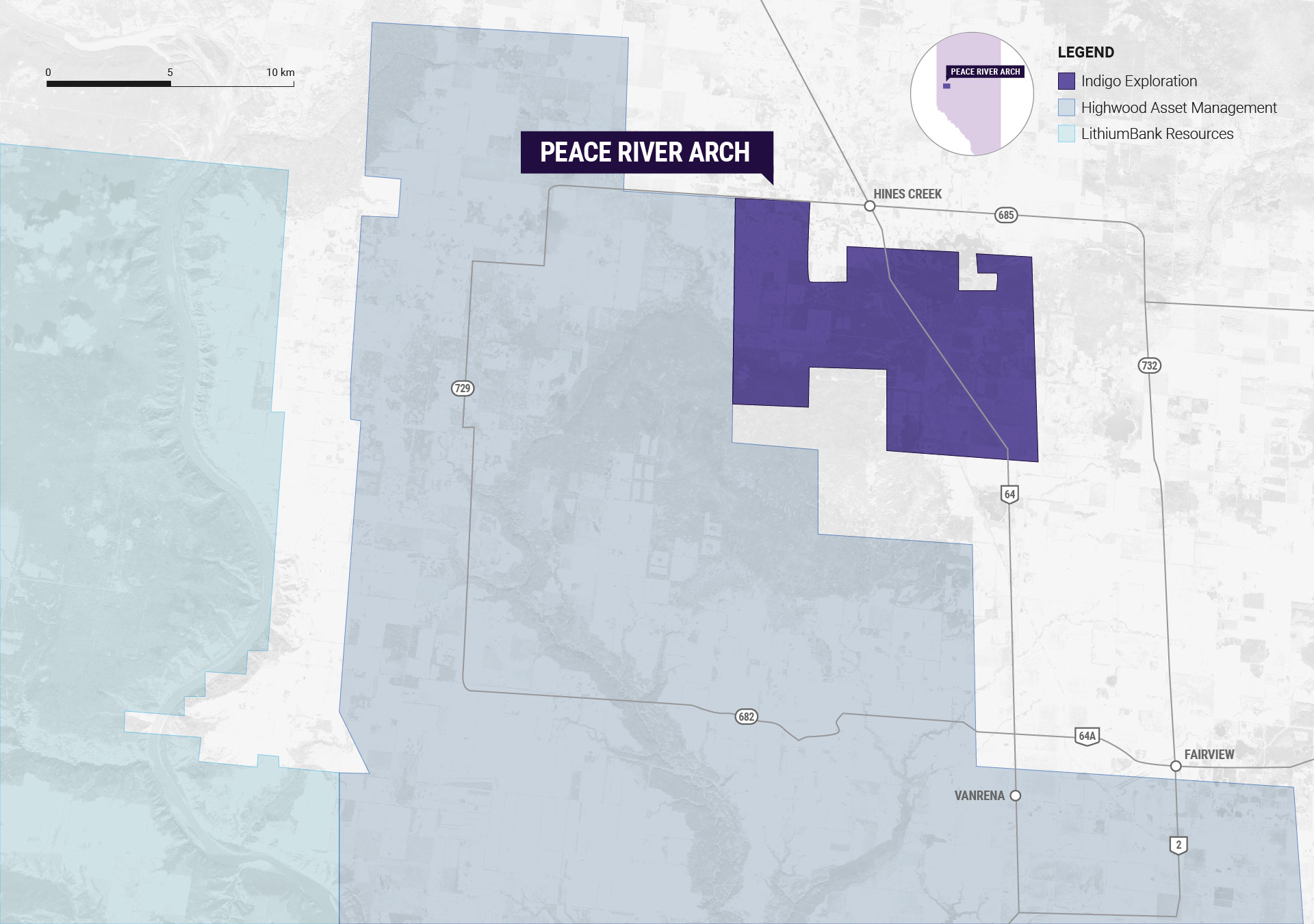
Figure 5: Indigo’s Peace River Lithium Brine Project (in purple) relative to LithiumBank and Highwood Properties
Peace River Project
The Peace River Project covers an area of 10,048 hectares (see Figure 4) and targets the Devonian Reef Complexes, including the Winterburn and Wabanum Groups. The Alberta Geological Survey (AGS) sampling data has had high consistent lithium concentrations, between 79-100mg/L Li. Indigo’s Peace River Project permit is adjacent to Highwood Asset Management (TSXV:HAM).
